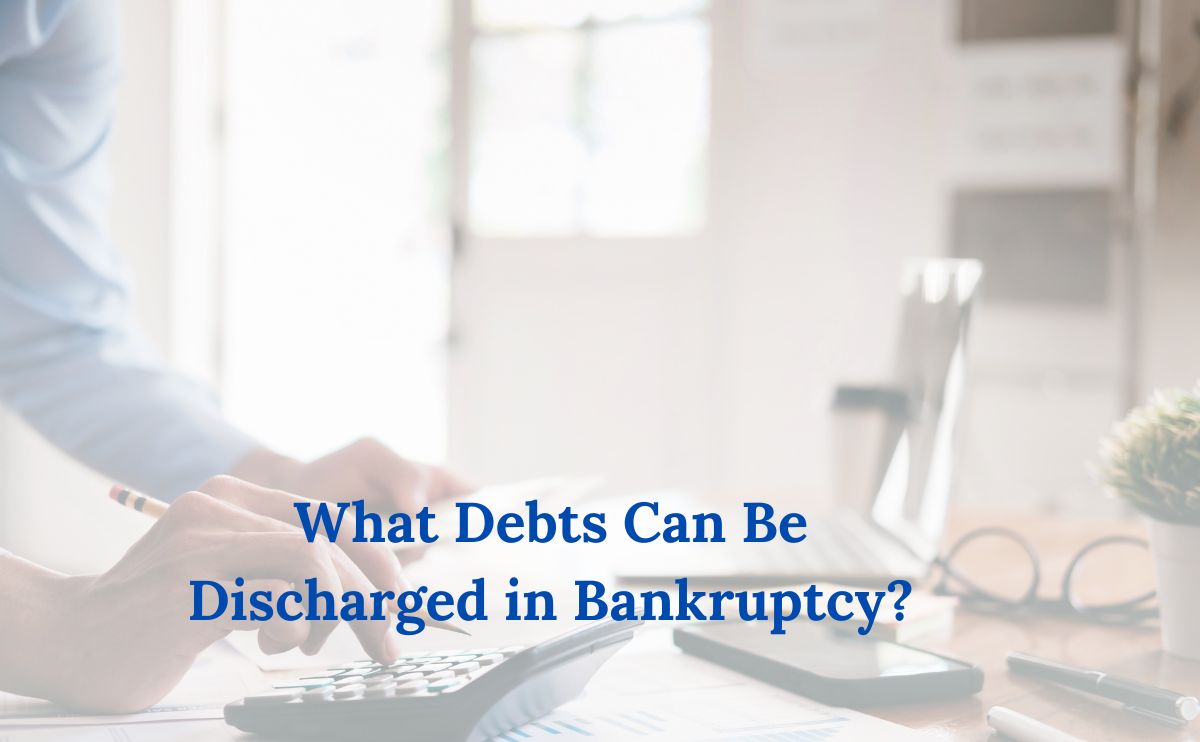Free Consultation
To discuss your financial situation and learn more about your debt relief options, give us a call at (520) 745-4429 or (480) 788-0098.
 Tucson(520) 745-4429
Tucson(520) 745-4429
 Mesa/Phoenix (480) 788-0098
Mesa/Phoenix (480) 788-0098

Debt stress often hits fast. Then the calls start, the letters pile up, and it gets harder to see a way forward. At Yusufov Law Firm PLLC, your preferred bankruptcy attorney in Mesa, Phoenix, and Tucson, we focus on real relief that fits your life. Bankruptcy can stop collector harassment, pause a foreclosure, and give you breathing room while we sort out the details.
For many people, the biggest question is simple: What debts will bankruptcy actually wipe out, and which ones it won’t? This article breaks that down in plain terms.
The moment a bankruptcy case is filed, the automatic stay goes into effect. This court order stops most collection activity right away, including collection calls, lawsuits, garnishments, and foreclosure actions. While the stay does not decide which debts are erased, it gives you time to stabilize and plan.
A discharge is a court order that wipes out your personal responsibility for certain debts. Once the court enters the discharge, creditors cannot sue you, call you, or send letters trying to collect those balances. The discharge is permanent, and violations can result in penalties against the creditor.
There is one important caveat. Valid liens on property usually survive the discharge unless the court removes them. This means the debt itself may be discharged, but the lender can still take the collateral if payments stop.
Understanding this distinction is critical, especially if you want to keep a home or vehicle while eliminating unsecured debt.
Chapter 7 bankruptcy is often called liquidation. A trustee may sell non-exempt assets to pay creditors, and then most remaining unsecured debts are discharged. For many filers, Arizona exemptions protect everything they own. In most cases, the discharge is entered about five to six months after filing.
Chapter 13 bankruptcy is a reorganization with a repayment plan lasting three to five years. You make monthly payments based on your income and expenses, and once the plan is completed, eligible remaining debts are discharged. This option is often used to catch up on mortgage or car arrears while protecting property.
| Feature | Chapter 7 | Chapter 13 |
| Main approach | Liquidation of non-exempt assets | 3–5 year repayment plan |
| Typical discharge timing | About 5–6 months after filing | After the final plan payment |
| Keep property | Exempt property or by agreement | Keep all property |
| Best fit | Low income, little equity, heavy unsecured debt | Higher income or need to save for a home or a car |
Both chapters trigger the automatic stay immediately upon filing.
Most unsecured consumer debts can be eliminated through bankruptcy. These are often the balances that put the most strain on monthly finances.
Clearing these debts often frees up income for housing, transportation, and everyday necessities.
Certain debts are treated differently under federal law, specifically 11 U.S.C. § 523(a). Some are never discharged, while others require a separate court action to determine dischargeability.
Even when some debts survive bankruptcy, eliminating the rest often makes the remaining obligations far more manageable.
Some income tax debt can be discharged if it meets strict timing and filing requirements. Generally, the tax must be old enough, properly filed, and assessed well before the bankruptcy case.
Getting these dates right is critical. When discharge is not available, tools like IRS payment plans or Offers in Compromise may still work alongside bankruptcy to create overall relief.
Student loans are not automatically discharged. However, borrowers can seek discharge by proving undue hardship through a separate lawsuit within the bankruptcy case, known as an adversary proceeding.
Recent federal guidance has made this process clearer and more achievable in some cases, though outcomes still depend heavily on individual facts. Both federal and private student loans may qualify if undue hardship is proven.
Secured debts are tied to collateral, such as a house or car. Bankruptcy can discharge your personal obligation, but the lien usually remains unless removed by the court or released by the lender.
In Chapter 7, you may keep the property if you stay current on payments or reach an agreement with the lender, or you can surrender the property and owe nothing further. Chapter 13 allows you to catch up on missed payments over time, which helps many people save their home or vehicle.
Creditors can object to the discharge of a specific debt if they believe fraud or misrepresentation occurred. Common triggers include luxury purchases shortly before filing, large cash advances, or false information on a credit application.
If the creditor proves its case, the debt survives bankruptcy.
To reduce risk:
Small steps early can prevent major problems later.
Our team helps individuals and small businesses find lasting relief from debt. We handle Chapter 7, Chapter 13, and Chapter 11 cases, including issues involving taxes, student loans, and creditor lawsuits.
If you are weighing your next steps, we are ready to help you build a clear plan that fits your goals.
Contact Yusufov Law Firm PLLC at (520) 745-4429 or (480) 788-0098, or reach out through our Contact Us page. We proudly serve clients in Mesa, Phoenix, and Tucson with practical, results-focused debt relief.
To discuss your financial situation and learn more about your debt relief options, give us a call at (520) 745-4429 or (480) 788-0098.
© 2010-2026 Yusufov Law Firm PLLC. All Rights Reserved | Disclaimer | Sitemap |